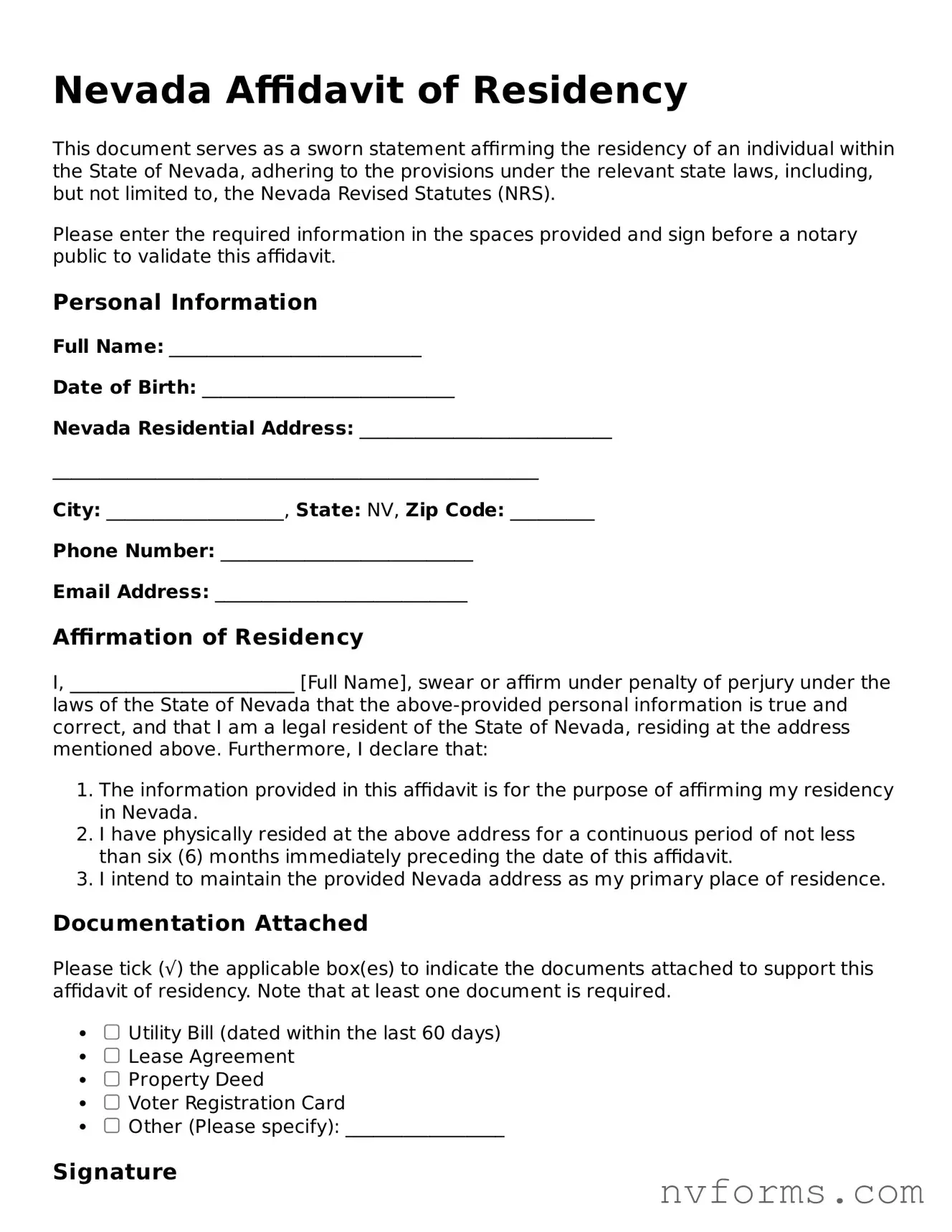Nevada Affidavit of Residency
This document serves as a sworn statement affirming the residency of an individual within the State of Nevada, adhering to the provisions under the relevant state laws, including, but not limited to, the Nevada Revised Statutes (NRS).
Please enter the required information in the spaces provided and sign before a notary public to validate this affidavit.
Personal Information
Full Name: ___________________________
Date of Birth: ___________________________
Nevada Residential Address: ___________________________
____________________________________________________
City: ___________________, State: NV, Zip Code: _________
Phone Number: ___________________________
Email Address: ___________________________
Affirmation of Residency
I, ________________________ [Full Name], swear or affirm under penalty of perjury under the laws of the State of Nevada that the above-provided personal information is true and correct, and that I am a legal resident of the State of Nevada, residing at the address mentioned above. Furthermore, I declare that:
- The information provided in this affidavit is for the purpose of affirming my residency in Nevada.
- I have physically resided at the above address for a continuous period of not less than six (6) months immediately preceding the date of this affidavit.
- I intend to maintain the provided Nevada address as my primary place of residence.
Documentation Attached
Please tick (√) the applicable box(es) to indicate the documents attached to support this affidavit of residency. Note that at least one document is required.
Signature
I understand that providing false information in this affidavit can result in penalties under the law. I affirm that all statements made in this document are true and correct to the best of my knowledge and belief.
____________________________________
Signature of Affiant
Date: ___________________
Subscribed and sworn to (or affirmed) before me on this _____ day of _______________, 20__, by _________________________________ [Name of Affiant], who proved to me on the basis of satisfactory evidence to be the person whose name is subscribed to the within instrument and acknowledged to me that he/she executed the same in his/her authorized capacity and that by his/her signature on the instrument, the person, or the entity upon behalf of which the person acted, executed the instrument.
____________________________________
Signature of Notary Public
My commission expires: ___________________

